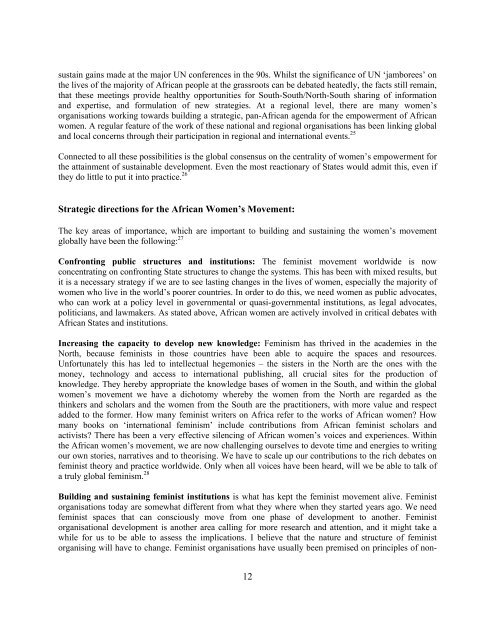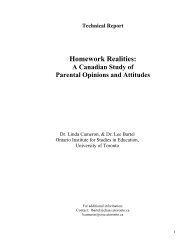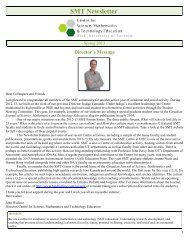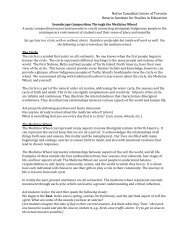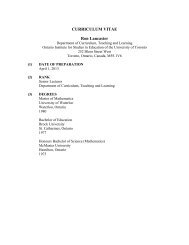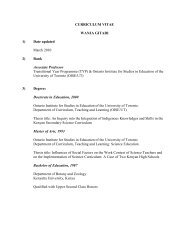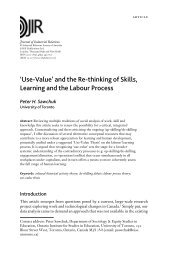CREATING AND SUSTAINING FEMINIST SPACE IN AFRICA ...
CREATING AND SUSTAINING FEMINIST SPACE IN AFRICA ...
CREATING AND SUSTAINING FEMINIST SPACE IN AFRICA ...
Create successful ePaper yourself
Turn your PDF publications into a flip-book with our unique Google optimized e-Paper software.
sustain gains made at the major UN conferences in the 90s. Whilst the significance of UN ‘jamborees’ on<br />
the lives of the majority of African people at the grassroots can be debated heatedly, the facts still remain,<br />
that these meetings provide healthy opportunities for South-South/North-South sharing of information<br />
and expertise, and formulation of new strategies. At a regional level, there are many women’s<br />
organisations working towards building a strategic, pan-African agenda for the empowerment of African<br />
women. A regular feature of the work of these national and regional organisations has been linking global<br />
and local concerns through their participation in regional and international events. 25<br />
Connected to all these possibilities is the global consensus on the centrality of women’s empowerment for<br />
the attainment of sustainable development. Even the most reactionary of States would admit this, even if<br />
they do little to put it into practice. 26<br />
Strategic directions for the African Women’s Movement:<br />
The key areas of importance, which are important to building and sustaining the women’s movement<br />
globally have been the following: 27<br />
Confronting public structures and institutions: The feminist movement worldwide is now<br />
concentrating on confronting State structures to change the systems. This has been with mixed results, but<br />
it is a necessary strategy if we are to see lasting changes in the lives of women, especially the majority of<br />
women who live in the world’s poorer countries. In order to do this, we need women as public advocates,<br />
who can work at a policy level in governmental or quasi-governmental institutions, as legal advocates,<br />
politicians, and lawmakers. As stated above, African women are actively involved in critical debates with<br />
African States and institutions.<br />
Increasing the capacity to develop new knowledge: Feminism has thrived in the academies in the<br />
North, because feminists in those countries have been able to acquire the spaces and resources.<br />
Unfortunately this has led to intellectual hegemonies – the sisters in the North are the ones with the<br />
money, technology and access to international publishing, all crucial sites for the production of<br />
knowledge. They hereby appropriate the knowledge bases of women in the South, and within the global<br />
women’s movement we have a dichotomy whereby the women from the North are regarded as the<br />
thinkers and scholars and the women from the South are the practitioners, with more value and respect<br />
added to the former. How many feminist writers on Africa refer to the works of African women How<br />
many books on ‘international feminism’ include contributions from African feminist scholars and<br />
activists There has been a very effective silencing of African women’s voices and experiences. Within<br />
the African women’s movement, we are now challenging ourselves to devote time and energies to writing<br />
our own stories, narratives and to theorising. We have to scale up our contributions to the rich debates on<br />
feminist theory and practice worldwide. Only when all voices have been heard, will we be able to talk of<br />
a truly global feminism. 28<br />
Building and sustaining feminist institutions is what has kept the feminist movement alive. Feminist<br />
organisations today are somewhat different from what they where when they started years ago. We need<br />
feminist spaces that can consciously move from one phase of development to another. Feminist<br />
organisational development is another area calling for more research and attention, and it might take a<br />
while for us to be able to assess the implications. I believe that the nature and structure of feminist<br />
organising will have to change. Feminist organisations have usually been premised on principles of non-<br />
12


